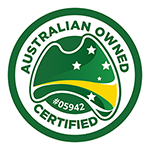Many self-managed super fund (SMSF) trustees have been breathing a sigh of rental relief after the ATO announced that changes could be made to commercial property agreements due to the financial fallout of the Covid-19 crisis.
One of the unique benefits of an SMSF is that property owned by the fund can be leased to members for business purposes at arm’s length commercial rates. However, in the current climate, tenants may not have the cash flow to pay rent to the SMSF.
Thankfully, for the 2019–20 and 2020–21 financial years, the ATO said it “will not take action where an SMSF gives a tenant — who is also a related party — a temporary rent reduction.”
While this may be music to the ears of many SMSF trustees, those who think this gives them free authority to provide full rental relief to related party tenants until June 30, 2021 – and that the ATO will turn a blind eye – think again.
That microscope the ATO had SMSFs under pre-pandemic hasn’t gone away. Audit standards and requirements still apply during the crisis, and if your rent relief arrangements aren’t carefully managed, it can cause huge compliance headaches and significant penalties come SMSF audit time.
As your trusted SMSF compliance partner, we’re going to break down what Evolv needs for a fund to get through audit, and the steps you can take to stay within commercial guidelines.
The commerciality of real-world scenarios
Early on, as lockdowns were looming, it was clear that many small businesses wouldn’t survive the pandemic without support from landlords. This urgency was recognised by the National Cabinet, and in April it announced a Mandatory Code of Conduct for commercial tenancies.
The code states that SME tenants who are eligible for the government’s JobKeeper program are automatically eligible for an array of rental reductions, waivers, and deferrals. The main criteria of JobKeeper being that business turnover is less than $1 billion, and that it experienced a reduction in turnover of 30% or more compared to a period of at least a month a year ago.
The ATO has indicated that the same eligibility applies to businesses linked to an SMSF; therefore, when assessing whether a superfund can provide rent relief without breaching regulations, comparing your tenant’s circumstances to real world scenarios is the best place to start. In doing so, you will be able to assess fund compliance with the following SISA regulations:
- The arm’s length test (S.109)
- Financial assistance to members (S.65)
- The sole purpose test (S.62) and in-house asset provisions
Are you compliant? The proof is in the paper trail
The ATO expects SMSF auditors to take on a policing role in monitoring rent relief, and to form an opinion on whether the relief represents a commercial or arm’s length dealing in the current environment. But an SMSF auditor can’t sign off on what’s inside a trustee’s head.
A trustee must provide clear commercial justification for allowing the relief and provide contemporaneous documentation of all decisions. This includes:
- Documentation from the tenant to the landlord (fund trustee) applying for rental relief.
- The numbers that provide the basis of that relief, such as reduction in turnover and staff layoffs.
- Documentation of the trustee’s decision to provide relief and why they considered the proposal. It may be helpful to look at what other landlords are doing with similar properties in a same or similar area.
- The trustee’s decision provided in writing to the related party tenant for them to sign off.
- A written agreement of terms provided to the landlord (the fund trustee).
The ATO has also clarified that the same rent relief measures may apply to property held by a fund via an interposed entity, such as a related unit trust, without the ATO concluding that the investment has become an in-house asset of the fund as a result.
Risks and red flags
If the relief looks reasonable and the trustee has provided the documented evidence that relief was offered as a result of the adverse financial impacts of Covid-19, then there shouldn’t be any issues to report. To be sure to avoid compliance breaches when auditing SMSFs, ask yourself:
- Is the turnover drop related to Covid-19 or is it seasonal?
- Was the business performing poorly prior to the pandemic?
- Was the tenant in arrears before Covid-19?
- Has the concession been limited to only temporary rent relief or reduction?
You also need to consider the timeframe of the temporary relief, and what happens once the lockdown is lifted and the business recovers.
If you’re still unsure about how to stay compliant amid the Covid-19 uncertainty, get in touch with us at Evolv to discuss how we can help you.








